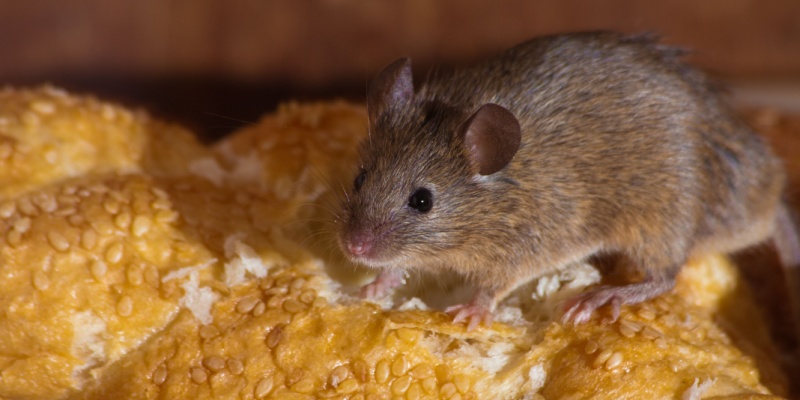Mice may be small, but they can cause significant problems if they invade your home. Early identification of a mouse problem is crucial for effective control and prevention. Here are some obvious signs that you might have a mouse infestation in your home:
1. Droppings
- Appearance Mouse droppings are small, dark, and pellet-shaped, typically about 1/8 to 1/4 inch long.
- Locations Commonly found near food sources, along baseboards, inside cabinets, and under sinks.
2. Gnaw Marks
- On Food Packaging Mice gnaw through food packaging to access food.
- On Structures Look for gnaw marks on wires, furniture, walls, and other household items.
3. Nests
- Materials Used Mice build nests using shredded paper, fabric, insulation, and other soft materials.
- Locations Nests are often hidden in secluded areas such as behind appliances, inside wall cavities, and in attics or basements.
4. Scratching Noises
- Timing Mice are nocturnal, so you’re more likely to hear them at night.
- Sources Listen for scratching or scampering sounds coming from walls, ceilings, or under floors.
5. Grease Marks
- Appearance Mice leave greasy smudges along their travel routes due to the oil and dirt on their fur.
- Locations Look for dark streaks along walls, baseboards, and around entry points.
6. Tracks and Footprints
- Dusty Areas In dusty areas like basements or attics, you might see tiny footprints or tail marks.
- Detection Method Sprinkle flour or talcum powder on suspected paths to reveal tracks.
7. Strong Odor
- Ammonia Smell A strong smell of ammonia may indicate the presence of mice urine.
- Concentrated Areas The odor is usually stronger in enclosed spaces like cupboards or drawers.
8. Unusual Pet Behavior
- Increased Interest Pets such as cats and dogs may show increased interest in certain areas where mice are active.
- Alertness and Scratching Pets may scratch at walls or paw at spaces where they hear or smell mice.
What To Do If You Suspect a Mouse Problem
1. Inspect Thoroughly
- Conduct a thorough inspection of your home to confirm the presence of mice.
- Check common hiding spots such as behind appliances, inside cabinets, and in attics or basements.
2. Seal Entry Points
- Identify and seal any cracks or gaps that could serve as entry points for mice.
- Use materials like steel wool and caulk to block openings.
3. Remove Food Sources
- Store food in airtight containers to prevent access by mice.
- Keep kitchen areas clean and free of crumbs or spills.
4. Set Traps
- Use snap traps or live traps to capture mice.
- Place traps along walls and near suspected entry points or nesting areas.
5. Call Professional Pest Control
- If the infestation is severe or persists despite your efforts, call a professional pest control service.
- Professionals can offer targeted treatments and long-term prevention strategies.
Identifying the signs of a mouse problem early can help you take swift action to address the issue before it escalates. Look out for droppings, gnaw marks, nests, scratching noises, grease marks, tracks, strong odors, and unusual pet behavior. Early detection and proactive measures are key to maintaining a mouse-free home. If you need help with any aspect of protecting your home from a mouse problem, reach out to the pros at All Pest Solutions.

